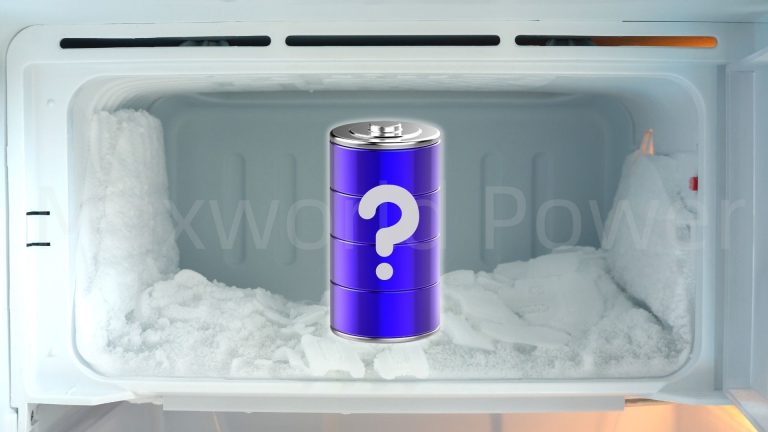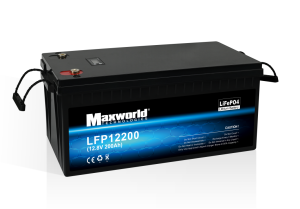
The most widespread misconception is that “storing batteries in the freezer significantly lengthens their lifespan.” This myth must be familiar to you. Did you not?
Batteries, as we all know, are the most expensive component of any device and serve as its structural foundation. As a result, we constantly desire to extend their lives in some way.
Keep in mind that while there are methods to extend the life of your batteries, doing so by keeping them in the refrigerator is not going to yield any significant benefits.
Take a look at this article if you’re wondering if the refrigerator’s batteries can last longer.It covers all the bases in this regard, including practical advice on how to store your batteries for the winter.
Does refrigeration extend the life of batteries?
It’s true—but unimportant—that batteries live longer when kept in the refrigerator if you’ve never heard this myth before. We’ll go into more detail about it later in the tutorial. People used to believe in this once, but it doesn’t really matter now.
In the past, home batteries (AAA, AAA, C, and D) were stored. A car battery or an RV battery should never be kept in the refrigerator. When rechargeable batteries were initially developed, they had a negative reputation.
This was due to the possibility of them losing a significant portion of their capability monthly.Users were so persuaded by this problem to take inventive action that they began freezing batteries in order to prolong their chemical reaction time and conserve more juice.
Thanks to technological developments, top brands’ rechargeable batteries now have the ability to hold up to 85% of their total charge for a whole year. As a result, you are no longer required to keep your batteries in the refrigerator.
Why is the freezer a bad place to keep batteries?
The following are the main reasons we advise against storing batteries in the refrigerator.
The next generation of sophisticated batteries has a very low self-discharge rate. It suggests that they have a greater endurance than any previous batteries. Disposable alkaline and lithium-ion batteries, for instance, self-discharge at a very slow rate. These days, it doesn’t matter if freezing batteries can theoretically slow down the process of self-discharge.
Batteries that have frozen must be warmed up before being used. If not, it will have a direct effect on how long they live. Furthermore, a battery that has not been properly warmed up before being installed in an electronic device may produce moisture, which poses a risk to all electronic devices. These days, nobody wants to spend thirty or sixty minutes of their time merely warming up batteries.
The case of the batteries may get damaged in cold weather. Rather than prolonging a battery’s life, you can make it shorter. Thus, swap out your disposable alkaline batteries for lithium-ion ones if you’re serious about extending the battery’s life.
What impact does temperature have on batteries?
At higher temperatures, the battery capacity rises, and at lower temperatures, it falls. This is the reason why, on a chilly morning, your car’s battery is unable to give the engine enough power to start.
Batteries typically function best at room temperature, or 25 degrees Celsius. There may be a 20% decrease in capacity at freezing temperatures. Similar to this, at -30 degrees Celsius, the battery’s capacity may decrease to 50%. In contrast, at higher temperatures—like 122 degrees Celsius—the capacity rises by 12%.
Put simply, heat causes batteries to lose their charge more quickly. Conversely, it is well known that low temperatures cause the chemical reaction process in batteries to slow down.
Note: Remember to adhere to the manufacturer’s instructions found in the handbook if you want your batteries to be charged and drained at the suggested temperatures and if you want to store them to get the most out of their performance.

In winter, how should Maxworld Power batteries be stored?
Winter battery storage is a topic that comes up a lot. Below are some guidelines you should adhere to in order to properly store lithium batteries in a chilly environment.
Your battery should always be kept in a cool, dry place. It will prevent them from being frozen. It is preferable to store batteries in garages or storage facilities with wood surfaces.
Disconnect the battery terminals in order to remove the electrical burden. It will prevent damage and slow down the discharge of your battery.
To ensure your battery lasts as long as possible, always do routine maintenance, particularly during the winter. Watering and rust removal might be part of it.
Winter battery storage tips
Now let's discuss some battery storage dos and don'ts.
Do’s Avoid placing your batteries in direct sunlight as this will cause the liquid in them to evaporate. Consequently, the battery is unable to carry out its duties.
Batteries should always be kept at normal temperature. You will benefit from the greatest results. The performance of batteries can be greatly impacted by storing them at temperatures that are either too high or too low.
Examine the local laws to make sure you dispose of your batteries properly. It is never a good idea to throw batteries in trash baskets since they can catch fire and contain hazardous materials.
Don’ts: Don’t combine old and new batteries. This is true because it’s possible for the old batteries to discharge into the new ones. Both batteries’ performance can suffer as a result.
Never keep your batteries in a plastic sandwich bag. A short circuit will occur if a metal object makes contact with the battery connections. When two unsecured batteries come into touch, the same thing happens.
Avoid short-circuiting your batteries since this can create a strong electrical current that can damage surrounding locations. Batteries have the potential to explode or catch fire.
How can you shield and maintain the warmth of your batteries in chilly weather?
It helps to prevent charging issues when you keep your batteries warm in a chilly area or temperature. You must keep your lithium batteries warm by storing them in an insulated or heated space. It will be worthwhile to utilize an external heating pad as well.
How to maintain battery warmth in chilly weather
It is a known fact that a lithium battery performs far better in colder temperatures than a lead-acid battery. A lithium battery operates efficiently even at above-freezing temperatures.
Modern lithium batteries include built-in heat enhancers that allow them to stay heated without the need for further work or special tools. The Maxworld Power 12V 200Ah Pro Smart Lithium Iron Phosphate battery, for instance, has an integrated self-heating feature.
The Maxworld Power battery mentioned above has the self-heating feature to improve overall performance in a chilly climate. It allows the battery to operate properly by precisely maintaining an ideal temperature inside.
When this feature is turned on, a tiny percentage of the battery’s energy will be used to generate heat inside the battery. It guarantees that the battery’s internal chemical reactions are occurring precisely as intended for charging and discharging. Furthermore, the heat produced maintains an electrolyte fluid.
You may be wondering that since the self-heating function uses battery power, its total capacity will be impacted. Correct? It doesn’t really affect the battery’s overall capacity or performance because it just uses a tiny amount of energy to keep the battery warm within.
You might also look at the cold-weather batteries that are offered for sale. They will assist you in lessening the intensity of your headache. Maxworld Power has a large selection of batteries that are necessary for improved performance.
FAQs
When batteries are placed in the freezer, what happens?
The chemical processes in batteries slow down when they are placed in the refrigerator. There is a misconception that batteries can live longer if they are kept in the freezer. Technically speaking, that is accurate, but it is not really important. Thus, it won’t really assist if you place your battery in the refrigerator.
How should outdated batteries be disposed of?
To get rid of outdated alkaline batteries, gather them all in a cardboard box or plastic container. They should tape their terminals to reduce the possibility of a fire. Similarly, you can attend to any municipal solid waste collection event to dispose of rechargeable batteries. Car battery recycling is a service offered by several auto dealers. To get a new battery and return the dead one, you can visit them.
Does battery recharging occur in the freezer?
Indeed, a frozen battery has more energy than a non-frozen one. Recall that the energy only grows by 5%, which is little in relation to the battery’s overall capacity. You can keep your battery in the freezer for an emergency. If not, this is not necessary to do. It should be common knowledge that modern batteries have a low self-discharge capability by default, therefore keeping them in the fridge is no longer necessary.
Does the cold extend the life of batteries?
Indeed, this is accurate. You will be shocked to learn that a battery maintained in a mild or colder condition lasts two to three times longer than a battery placed in a high temperature if you compare the performance of two batteries placed in a cold and a hot environment, respectively.
According to research, batteries typically last 18 to 23 months in southern regions, such as Florida. In contrast, a battery’s lifespan in Northern Europe, Canada, or the northern US states ranges from 48 to 54 months.
What is the ideal location for battery storage?
The only location that will optimize your battery’s performance for storage is a temperature-controlled chamber with constant airflow. Make sure your batteries are not directly exposed to sunlight. Batteries should usually be stored in cold, dark areas. The overall performance of the battery has been shown to increase in this kind of setting.
Concluding remarks
It’s a fallacy that storing batteries in the freezer would extend their lifespan. This myth was once widely believed to extend the life and improve the general performance of batteries.While it is true that placing a battery in a cold environment slows down chemical reactions, this does not significantly alter the performance of the battery.
Modern battery technology has completely revolutionized the market. They include a delayed self-discharging feature that eliminates the requirement for frozen storage of batteries. In addition, a battery that has been refrigerated cannot be used until it has warmed up. Up to 30 or 60 minutes could pass.
It is advised to switch to lithium-ion batteries if you are currently using alkaline cells in order to maximize performance. These days, a lot of batteries have the capacity to slowly discharge themselves; as a result, you no longer need to keep them frozen. If you’re looking to get durable batteries with Maxworld Power.

